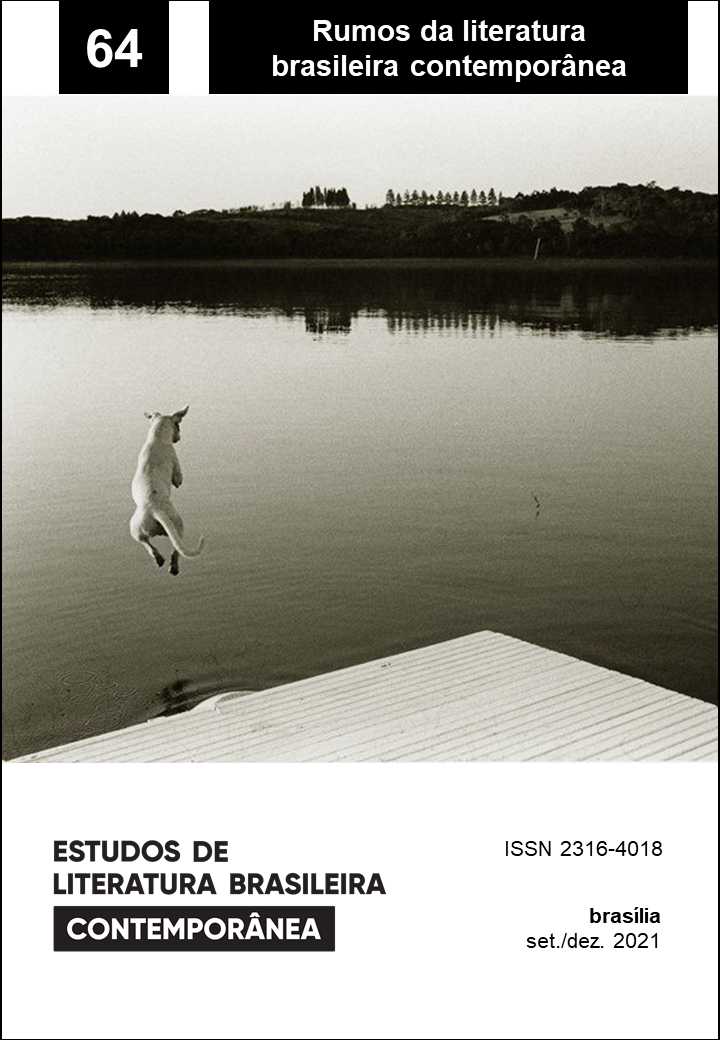The post-memory crisis and the horizon of survivals: memory battlegrounds in contemporary Brazil
DOI:
https://doi.org/10.1590/2316-4018645Keywords:
post-memory, survivals, military dictatorship, uses of the past.Abstract
This article focuses on the slippery concept of “post-memory” that emerged in the 1990s in a cultural rather than historical context. Trying to decipher its points of strength and weakness, situated in particular in the Brazilian case, the analysis questions whether this critical reconfiguration of the memory of the second and successive generations has contributed - or not - to being included in the contemporary debate on saving memories at risk. The practice of “desaparecimento forçado” (forced disappearing) and its (im)possible memory inheritance for other generations offers an extreme point for the critical reflection. Even though it emerged in the post-Shoah context, post-memory finds applications in different critical contexts – as in the case of military authoritarianism in Latin America and the Brazilian military dictatorship (1964-1985). After a review of the conceptual debate, the pars construens of the reflection seeks to verify whether the analytical disassembly of the postmemory, associated with the figure of survivals (see Pasolini, Didi-Huberman, Warburg, Benjamin), may provide a new critical dimension, through which to rethink the transmission of memory and the economy of inheritance. From this rearticulation, a politics of survivals may perhaps reformulate, in its alliance with fields such as literature or arts, an alternative and possible relationship with the past.
Downloads
References
AGAMBEN, Giorgio (1998). Quel che resta di Auschwitz. L’archivio e il testimone. Torino: Bollati Boringhieri.
AGAMBEN, Giorgio (2000). Il tempo che resta. Un commento alla lettera ai Romani. Torino: Bollati Boringhieri.
ASSMANN, Aleida (2002). Ricordare: Forme e mutamenti della memoria culturale. Tradução de Simona Paparelli. Bologna: Il Mulino.
BENJAMIN, Walter (1962). Il narratore. Considerazioni sull’opera di Nicola Leskov. In: BENJAMIN, Walter. Angelus novus. Saggi e frammenti. Tradução de Renato Solmi. Torino: Einaudi. p. 247-274.
BIDUSSA, David (2009). Dopo l’ultimo testimone. Torino: Einaudi.
DIDI-HUBERMAN, Georges (2010). Come le lucciole: una politica delle sopravvivenze. Tradução de Chiara Tartarini. Torino: Bollati Boringhieri.
FERRONI, Giulio (1996). Dopo la fine: sulla condizione postuma della letteratura. Torino: Einaudi.
FINK, Ida (2002). Frammenti di tempo. Tradução de Laura Quercioli Mincer. Firenze: Giuntina.
FUKS, Julián (2015). A resistência. São Paulo: Companhia das Letras.
GATTI, Gabriel (2008). El detenido-desaparecido: narrativas posibles para uma catástrofe de la identidad. Montevideo: Ediciones Trilce.
GRAMMONT, Guiomar de (2015). Palavras cruzadas. Rio de Janeiro: Editora Rocco.
GRAMSCI, Antonio (1975). Quaderno 25 (XXIII) 1934: Ai margini della storia (storia dei gruppi sociali subalterni). In: GRAMSCI, Antonio. Quaderni del carcere. Torino: Einaudi. v. 3, p. 2277-2294.
HIRSCH, Marianne (1997). Family frames: photography, narrative and postmemory. Cambridge: Harvard University Press.
HIRSCH, Marianne (2006). Immagini che sopravvivono: le fotografie dell’Olocausto e la post-memoria. In: CATTARUZZA, Marina; FLORES, Marcello; SULLAM, Simon Levis (ed.) Storia della Shoah. La crisi della Europa, lo sterminio degli ebrei e la memoria del XX secolo. Torino: UTET. v. 3, p. 385-421.
HIRSCH, Marianne (2012). The generation of postmemory: writing and visual culture after the Holocaust. New York: Columbia University Press.
KUCINSKI, Bernardo (2011). K. Relato de uma busca. São Paulo: Expressão Popular.
KUCINSKI, Bernardo (2016). Os visitantes. São Paulo: Companhia das Letras.
LAGE, Cláudia (2019). O corpo interminável. Rio de Janeiro: Record.
LANDSBERG, Alison (2004). Prosthetic memory: the transformation of American remembrance in the age of mass culture. New York: Columbia University Press.
LEVI, Primo (1991). Prefazione. Rivistando i Lager, 6-7. Milano: Idea Books.
LISBOA, Adriana (2010). Azul-corvo. Rio de Janeiro: Editora Rocco.
PASOLINI, Pier Paolo (2020). Escritos corsários. Tradução de Maria Betânia Amoroso. São Paulo: Editora 34.
RUBENS PAIVA, Marcelo (1984). Feliz ano velho. 28. ed. São Paulo: Brasiliense.
SARLO, Beatriz (2007). Tempo passado: cultura da memória e guinada subjetiva. Tradução de Rosa Freire d’Aguiar. Belo Horizonte: Editora da UFMG; São Paulo: Companhia das Letras.
TRAVERSO, Enzo (2006). Il passato: istruzioni per l’uso. Storia, memoria, politica. Tradução de Gianfranco Morosato. Verona: Ombre Corte.
VECCHI, Roberto (2020). A impossível memória de Araguaia: um patrimônio sem memorial? In:
OLIVEIRA, Rejane Pivetta de; THOMAZ, Paulo C. (ed.) Literatura e ditadura. Porto Alegre: Zouk. p. 45-58.
WAJCMAN, Gérard (1998). L’objet du siècle. Lagrasse: Verdier.
YOUNG, James E. (2000). At Memory’s edge. After-images of the Holocaust in contemporary art and architecture. New Haven: Yale University Press
DERRIDA, Jacques (1994). Spettri di Marx: stato del debito, lavoro del lutto e nuova Internazionale. Tradução de Gaetano Chiurazzi. Milano: Raffaello Cortina.
DIDI-HUBERMAN, Georges (2006). L’immagine insepolta. Aby Warburg la memoria dei fantasmi e la storia dell’arte. Tradução de A. Serra. Torino: Bollati Boringhieri.
Downloads
Published
How to Cite
Issue
Section
License
Copyright (c) 2021 Roberto Vecchi

This work is licensed under a Creative Commons Attribution-NoDerivatives 4.0 International License.
Authors who publish in this journal agree to the following terms:
a) The authors maintain the copyright and grant the journal the right of first publication, the work being simultaneously licensed under the Creative Commons Attribution License-Non Commercial 4.0 which allows the sharing of the work with acknowledgment of the authorship of the work and publication this journal.
b) Authors are authorized to enter into additional contracts separately, for non-exclusive distribution of the version of the work published in this journal (eg publish in institutional repository or as a book chapter), with authorship recognition and publication in this journal.
c) Authors are allowed and encouraged to publish and distribute their work online (eg in institutional repositories or on their personal page) after the editorial process, as this can generate productive changes, as well as increase the impact and citation of published work (See The Effect of Free Access).
d) The authors of the approved works authorize the magazine to, after publication, transfer its content for reproduction in content crawlers, virtual libraries and the like.
e) The authors assume that the texts submitted to the publication are of their original creation, being fully responsible for their content in the event of possible opposition by third parties.


